If marketing had a Swiss Army knife, it would probably look a lot like HubSpot.
This all-in-one platform is built to help businesses attract leads, close deals, and keep customers happy, with a side of automation magic. And at the center of it all? The HubSpot Marketing Hub: your new best friend for emails, campaigns, content, and everything in between.
In this guide, we're breaking down everything you need to know about the Marketing Hub, from setting up your first campaign to mastering automation workflows like a pro.
Whether you're a scrappy marketer wearing all the hats, a growing small business looking to scale, or part of a seasoned enterprise team, there's something in here for you.
Let's get into it, because great marketing shouldn't feel like herding cats.
What Is HubSpot Marketing Hub?

HubSpot Marketing Hub is the marketing powerhouse within the broader HubSpot platform. Think of it as your mission control for all things inbound, designed to help you attract the right audience, convert leads, and nurture relationships without drowning in spreadsheets or jumping between ten different tools.
At its core, the Marketing Hub gives you everything you need to create, manage, and optimize marketing campaigns. We're talking email marketing, landing pages, social media scheduling, SEO tools, lead capture forms, and powerful automation, all wrapped up in a clean, user-friendly interface.
So, how does it fit into the HubSpot ecosystem? Perfectly, actually.
HubSpot is made up of interconnected "hubs" such as Marketing, Sales, Service, CMS, and Operation, all built on the same CRM foundation. This means your marketing team isn't working in a silo. Data flows freely between departments, giving everyone a full view of the customer journey. Marketing knows what sales is doing, sales sees what marketing is up to, and service can jump in without missing a beat.
And the benefits?
Marketing Hub is tailor-made for inbound marketing, helping you attract qualified leads with content, engage them with personalized experiences, and delight them with ongoing value. Automation tools save time and reduce manual work, so you can scale efforts without burning out. It's smarter marketing with less chaos—what's not to love?
HubSpot Marketing Hub Features: What You Get at Each Tier
HubSpot Marketing Hub isn't just a one-size-fits-all tool. It comes in different tiers to match your marketing needs, whether you're just getting started or managing campaigns at scale. These tiers (or pricing levels) are:
- Free — Basic marketing tools at no cost.
- Starter — Entry-level paid features (starting around $15/month, depending on contacts).
- Professional — More advanced marketing automation, reporting, and campaign management tools.
- Enterprise — Full-scale, enterprise-grade marketing capabilities with advanced customization, reporting, and team management.
In addition to these, there's also a custom tier for larger enterprises.
Each tier adds progressively more functionality, and pricing usually scales based on the number of marketing contacts you manage.
Before we break down in detail what's in each package, let's take a quick spin through some key HubSpot features
*Pricing as of May 2025
Overview of HubSpot Marketing Hub Features
Here's a brief overview of the key features marketers expect when they pay for their HubSpot Marketing hub subscription:
- Email Marketing & Automation
Create professional emails with drag-and-drop ease, personalize content for your audience, and automate follow-ups so leads don't fall through the cracks. - Landing Pages & Lead Capture
Build high-converting landing pages and forms without a developer. Capture leads and feed them right into your CRM for easy follow-up. - Blogging & SEO Tools
Get discovered with optimized blog content using built-in SEO recommendations and tools that help you rank higher (without needing an SEO degree). - Campaign Management & Analytics
Plan, track, and analyze your campaigns in one place. See what's working, what's not, and where to double down.
What You Get at Each Tier
Here's a more detailed breakdown of what users can expect at each tier.
1. HubSpot Marketing Hub Starter
Best for: Small teams or solopreneurs dipping their toes into inbound marketing.
- Email marketing with simple automation
- Ad management and lead tracking
- Basic landing pages and forms
- Contact segmentation
- Reporting dashboard
- Limited customization options
In short: Great for getting started with email campaigns and lead capture without the complexity.
2. HubSpot Marketing Hub Professional
Best for: Growing businesses ready to scale their marketing efforts.
- Everything in Starter, plus:
- Marketing automation workflows
- Smart content personalization
- A/B testing for emails and landing pages
- Dynamic list segmentation
- Advanced SEO tools and blog creation
- Campaign management tools
- Attribution reporting
In short: A solid choice if you're ready to level up with automation, personalization, and deeper analytics.
3. HubSpot Marketing Hub Enterprise
Best for: Large teams with complex campaigns and advanced needs.
- Everything in Professional, plus:
- Custom event triggers and advanced automation
- Hierarchical teams and user permissions
- Multi-touch revenue attribution
- Advanced reporting and analytics tools
- Sandboxes for testing
- Adaptive testing (beyond A/B)
- Custom objects and reporting
In short: Perfect for enterprise-level teams that need deep customization, granular control, and scalable infrastructure.
Here's a comparison of the features of each tier, summarized in the form of a table for quick reference:
|
Feature |
Starter |
Professional |
Enterprise |
|
Email Marketing |
Drag-and-drop editor |
A/B testing, smart content |
Advanced personalization & testing |
|
Marketing Automation |
Basic autoresponders |
Workflow automation |
Custom event triggers, advanced workflows |
|
Landing Pages |
Basic templates |
A/B testing, smart content |
Advanced customization |
|
Forms & Lead Capture |
Embedded forms |
Progressive profiling, pop-ups |
Custom objects for lead data |
|
Blogging & SEO Tools |
— |
SEO recommendations, blog creation |
Advanced content partitioning |
|
Campaign Management |
— |
Campaign tools & tracking |
Hierarchical team management |
|
Analytics & Reporting |
Basic dashboard |
Attribution reporting, campaign analytics |
Multi-touch attribution, custom reporting |
|
Ad Management |
Manage Google, Facebook, and LinkedIn ads |
ROI tracking |
Advanced targeting and team-based ad access |
|
Personalization |
— |
Smart content blocks |
Personalized experiences using custom data |
|
User Permissions & Teams |
Basic |
Standard |
Advanced permissions, team hierarchies |
|
Testing Tools |
— |
A/B testing for emails and landing pages |
Adaptive testing |
|
Sandbox & Environment Testing |
— |
— |
Sandboxes for safe testing and experimentation |
No matter your size or stage, there's a HubSpot Marketing Hub tier that fits your needs. Whether you're building your first email campaign or managing a global, multi-channel strategy, HubSpot scales with you—without making your life harder.
HubSpot Marketing Hub Pricing and Cost Breakdown

So, how much is HubSpot Marketing Hub, really? That's the million-dollar (well, hopefully not literally) question. The short answer: it depends on your tier, how many contacts you have, and any add-ons you might need.
Let's break it down so you can budget smart and avoid any surprise costs.
HubSpot Marketing Hub Pricing by Tier (2025 Estimates)
|
Tier |
Starting Price (Monthly) |
Contacts Included |
Additional Contact Cost |
|
Starter |
$15/month |
1,000 contacts |
$20/month per additional 1,000 contacts |
|
Professional |
$800/month |
2,000 contacts |
$45/month per additional 5,000 contacts |
|
Enterprise |
$3,600/month |
10,000 contacts |
Custom pricing for higher contact volumes |
*Note: Prices are billed annually and may vary slightly by region or promotions. Above pricing is as of May 2025
You can view detailed pricing here.
Detailed Breakdown by Tier
Marketing Hub Starter
- Cost: Starts at $15/month for 1,000 contacts
- Best for: Freelancers, startups, or small teams
- Includes: Email marketing, ad management, forms, basic landing pages, and simple automation
- Add-ons:
- Additional contacts: ~$20/month per 1,000
- Support: Community + email/chat
Marketing Hub Professional
- Cost: Starts at $800/month for 2,000 contacts
- Best for: Growing teams and mid-sized businesses
- Includes: Full marketing automation, campaign tools, SEO, blog, A/B testing, and attribution reporting
- Add-ons:
- Additional contacts: ~$45/month per 5,000
- Users: Unlimited (but permissions vary)
- Support: 24/7 phone, chat, and email support included
Marketing Hub Enterprise
- Cost: Starts at $3,600/month for 10,000 contacts
- Best for: Large marketing teams with complex workflows and reporting needs
- Includes: Advanced automation, custom objects, adaptive testing, multi-touch attribution, and custom reporting
- Add-ons:
- Custom contact volume pricing
- Dedicated onboarding (may cost extra)
- Additional business units: ~$1,000/month
- Sandboxes, partitioning, advanced permissions
- Premium support and services optional
Total Cost of Ownership: What to Keep in Mind
When answering "How much is HubSpot Marketing Hub?", here's what factors into your total cost:
- Base Subscription Tier (Starter, Pro, or Enterprise)
- Contact Tier Add-Ons (the more contacts, the more you pay)
- Onboarding Fees (usually required for Pro and Enterprise tiers and can range from $1,000 to $6,000+)
- Add-Ons: Extra business units, sandboxes, custom reports, etc.
- User Access Needs: While you don't pay per user, advanced permissions and roles are limited in lower tiers
HubSpot Marketing Hub Onboarding and Implementation

What's Included in HubSpot Marketing Hub Onboarding
Depending on your HubSpot subscription (especially at the Professional and Enterprise levels), onboarding is required and comes with a mix of guided support and resources to get you up and running. Here's what you can typically expect:
- Strategic setup sessions with HubSpot onboarding specialists
- Help configure core tools like email marketing, landing pages, automation, and reporting
- CRM and contact management guidance
- Assistance with importing data and integrating third-party tools
- Access to HubSpot's vast knowledge base, training videos, and templates
- Recommendations tailored to your business goals
Here's a more detailed explanation of what users can expect with HubSpot onboarding.
Onboarding can last anywhere from a few weeks to a few months, depending on your tier, complexity, and team size. Onboarding fee is usually a one-time cost, starting around $3,000+ for Professional and $6,000+ for Enterprise, though it may vary depending on your specific needs or offers.
Best Practices for HubSpot Marketing Hub Implementation
To make the most of your onboarding and ensure a smooth implementation, here are a few pro tips:
- Define Your Goals Upfront
Know what success looks like for your marketing efforts. Is it lead gen? Better email performance? Improved attribution?. Once you know your goals, align your setup accordingly. - Clean Your Data First
Garbage in, garbage out, which means if your data isn't clean, even the best tools in the world will be of no use. Make sure your contact lists are up-to-date and segmented properly before importing. - Map Your Workflows Strategically
Start with core automation needs (like lead nurturing or abandoned cart emails) and expand as your team gets comfortable. - Take Advantage of Training
HubSpot Academy is packed with free courses to level up your team on everything from SEO to email best practices. For a primer on how to unlock HubSpot for growth, you can also have a look at this detailed guide to HubSpot for SaaS growth that we prepared. - Get Internal Buy-In
Make sure sales, service, and leadership are looped in. HubSpot works best when the whole org is aligned and using the same data.
Working with a HubSpot Solutions Partner
Not feeling like tackling it all yourself? That's where HubSpot Solutions Partners come in. These are certified agencies and consultants that specialize in setting up and optimizing HubSpot for businesses like yours.
Benefits of working with a partner:
- Customized implementation based on your business model
- Advanced strategy and execution (beyond what HubSpot onboarding covers)
- Help with integrations, migrations, or complex automation
- Ongoing support, training, and optimization post-launch
Whether you're short on time, tackling a big transition, or just want expert help, a partner can accelerate your success—and save you a lot of trial-and-error headaches. Here's a more detailed guide to understanding all the benefits you get when working with a HubSpot certified partner.
HubSpot Marketing Hub vs Sales Hub: Key Differences

When it comes to growing your business, marketing and sales are two sides of the same (very important) coin. HubSpot knows this, which is why they offer dedicated hubs for each function—Marketing Hub and Sales Hub—that work beautifully on their own, but even better together.
Let's break down what each hub does, who it's for, and how they can align to drive serious results.
HubSpot Marketing Hub vs Sales Hub: The Basics
|
Feature |
Marketing Hub |
Sales Hub |
|
Primary Focus |
Attracting and engaging leads |
Closing deals and managing sales pipelines |
|
Key Tools |
Email marketing, automation, SEO, landing pages, forms |
Email tracking, meeting scheduler, pipelines, sequences |
|
Lead Nurturing |
Campaigns, workflows, and lead scoring |
Email sequences, task automation |
|
Content & SEO |
Blogging, SEO recommendations |
— |
|
CRM Integration |
Uses shared HubSpot CRM |
Uses shared HubSpot CRM |
|
Reporting & Analytics |
Campaign, attribution, and website analytics |
Deal forecasting, rep performance tracking |
|
Automation |
Marketing workflows |
Sales sequences and task automation |
|
Personalization |
Smart content and email personalization |
Email templates, snippets, playbooks |
|
Best For |
Marketing teams focused on lead generation & engagement |
Sales teams focused on deal flow & pipeline management |
Which Teams Should Use Which Hub (or Both)?
- Marketing Teams - Should use Marketing Hub to drive traffic, capture leads, nurture prospects, and measure campaign performance. Ideal for content creators, email marketers, digital strategists, and demand gen pros.
- Sales Teams - Should use Sales Hub to manage contacts, track deals, automate outreach, and close leads efficiently. Perfect for account executives, SDRs, BDRs, and sales managers.
- Both Teams Together - Want smoother handoffs, better lead quality, and more closed deals? Use both hubs together. This combo gives you shared contact data, unified reporting, and better visibility across the funnel.
Integration and Alignment Between Marketing and Sales
One of the biggest perks of using HubSpot is sales and marketing alignment. Both hubs run on the same CRM, meaning no more miscommunication, lead black holes, or data silos.
Here's how they sync up:
- Lead Handoff: Marketing captures and qualifies leads; Sales gets real-time alerts and activity history.
- Shared Data: Both teams see the same contact timelines, interactions, and lifecycle stages.
- Closed-Loop Reporting: Track which marketing campaigns actually drive revenue.
- SLAs and Lead Scoring: Define what a "sales-ready lead" is and ensure timely follow-up.
If you're interested in learning more about CRM integration, here's a detailed guide on leveraging CRM integration to help you get started.
TL;DR
- Marketing Hub = Bring in and nurture leads.
- Sales Hub = Convert those leads into customers.
- Together = A full-funnel, growth-driving powerhouse.
Who Is HubSpot Marketing Hub Best For?

HubSpot Marketing Hub is built to grow with your business, whether you're a solo marketer at a startup, running a lean team at an SMB, or managing complex campaigns at the enterprise level. Its flexibility and scalability make it one of the most popular choices for inbound marketers looking to streamline, automate, and scale their efforts.
Let's look at who it's best for, based on company size, marketing maturity, and growth goals.
Ideal Use Cases by Business Size
Startups
Startups often need to move fast with lean teams and limited resources. Marketing Hub Starter is a perfect fit, giving you the essential tools to build email lists, create landing pages, capture leads, and start basic automations—without a massive learning curve.
Use case:
- Launching lead gen campaigns
- Building an early audience
- Creating foundational marketing workflows
Small to Mid-Sized Businesses (SMBs)
SMBs are usually ready to scale and need more advanced automation, personalization, and analytics. Marketing Hub Professional hits the sweet spot here, offering the perfect mix of power and usability.
Use case:
- Automating lead nurturing
- Running multi-channel campaigns
- Using A/B testing and smart content to boost conversion rates
- Measuring ROI and attribution
Enterprise Businesses
Large teams need deeper customization, scalable processes, and sophisticated reporting. Marketing Hub Enterprise delivers features like custom objects, multi-touch attribution, advanced permissions, and sandboxes for testing.
Use case:
- Managing multiple business units or regions
- Running global campaigns with segmented teams
- Integrating with complex tech stacks
- Deep analytics and revenue attribution
Use Cases by Marketing Maturity & Business Goals
Whether you're just getting started or fine-tuning an advanced inbound engine, there's a version of Marketing Hub that fits your maturity level:
- Beginner → Build basic email and lead gen funnels, track initial engagement, and start building your CRM. (Starter)
- Intermediate → Launch automated campaigns, optimize for conversions, and create tailored content. (Professional)
- Advanced → Run global strategies, experiment with adaptive testing, and tie marketing activities directly to revenue. (Enterprise)
How to Choose Between Starter, Pro, and Enterprise
Here's a simple table to help you pick the best HubSpot Marketing Hub tier based on your business requirements.
|
Requirement |
Best Tier |
|
Basic email campaigns, forms, and landing pages |
Starter |
|
Automation workflows, A/B testing, blog & SEO tools |
Professional |
|
Custom objects, multi-touch attribution, advanced teams |
Enterprise |
Still unsure? Think about:
- How complex your buyer's journey is
- How many leads you handle each month
- How much time your team spends on manual tasks
- What kind of analytics you need to prove ROI
If you're still unsure about which tier is right for you, why not go through this HubSpot Marketing Hub tutorial that will answer a lot of questions you may still have in mind.
TL;DR
HubSpot Marketing Hub is best for anyone serious about inbound marketing—from scrappy startups to enterprise juggernauts. The key is matching your current needs and future growth plans to the right tier. Start small if you need to, but know that when your business is ready to scale, HubSpot can scale right along with you.
HubSpot Marketing Hub Help and Support: Where to Turn When You Need a Hand

Even the most intuitive tools can raise questions now and then. Whether you're stuck setting up an automation, can't figure out why your form won't sync, or just need a little best-practice guidance, HubSpot's help and support options have your back.
Here's how to tap into all the support resources HubSpot offers, so you're never stuck for long.
Customer Support Channels
Your access to HubSpot's direct support depends on your subscription tier:
|
Support Channel |
Starter |
Professional |
Enterprise |
|
Email Support |
Yes |
Yes |
Yes |
|
Live Chat Support |
Yes |
Yes |
Yes |
|
Phone Support |
Not available |
Yes |
Yes |
|
Priority Support |
Not available |
Not available |
Optional add-on |
Pro tip: Support is available in multiple languages and time zones, and HubSpot's reps are known for being pretty quick and incredibly helpful.
Self-Serve Help: Docs, Forums & More
In addition to the channels listed above, HubSpot also has a deep and friendly ecosystem of self-help tools. These are a great help if you're the DIY type or want a faster answer outside of support hours. Here's what's included:
Knowledge Base
HubSpot's Help Center is packed with up-to-date documentation, how-tos, walkthroughs, and troubleshooting guides. Just type your question, and you'll probably find an answer within minutes.
HubSpot Community
A forum of fellow users, partners, and HubSpot pros who love to swap ideas, share solutions, and troubleshoot together. Great for tips, tricks, and workarounds from real-world users.
HubSpot Academy
Need to skill up on a feature or learn best practices? HubSpot Academy courses and certifications cover everything from inbound methodology to email marketing and automation workflows. And yes—it's all free.
Live Chat Bot
For quick answers or to route you to a human, the live chat bot on HubSpot's site is a handy first stop.
Getting the Most from HubSpot Marketing Hub Help
- Know your tier – Some support features are only available at Professional and Enterprise levels.
- Use the Help Widget – The in-app help widget brings articles and chat right into your workflow.
- Bookmark the Knowledge Base – It's faster than waiting on an email thread when you need a quick fix.
- Join the Community – You'd be surprised how many of your questions already have answers there.
- Consider a Solutions Partner – For complex setups or long-term strategy, a HubSpot-certified agency or consultant can provide ongoing support and optimization.
Final Thoughts
HubSpot Marketing Hub is a powerful all-in-one platform designed to streamline your marketing efforts, automate workflows, and drive smarter decisions through data-driven insights. Whether you're just starting out or managing complex campaigns, the Hub provides essential tools like email marketing, automation, landing pages, and analytics, all tied together through a unified CRM.
Key Benefits:
- Scalable automation and lead nurturing
- Easy-to-use tools for content, SEO, and campaigns
- Deep integration with sales and service teams
- Access to a wealth of support resources
Cost Breakdown:
- Starter: Ideal for startups or small businesses looking for basic marketing tools at an affordable price.
- Professional: Perfect for growing teams that need advanced features, automation, and deeper analytics.
- Enterprise: Best for large companies with complex needs, offering advanced customization, multi-touch attribution, and global team support.
Investing in the right HubSpot tier means choosing the features that fit your business goals, marketing maturity, and team size. From startups to enterprises, HubSpot Marketing Hub has a solution to fuel your growth—now it's up to you to choose the best fit!
If you're not sure about paying for HubSpot, you can always do your own research and compare HubSpot with other tools available in the market. Here's a guide we prepared that compares HubSpot against other independent inbound marketing tools, to help you get started.
Roketto is a HubSpot certified partner, which means we are an officially recognized and trusted provider of HubSpot-related services. Get in touch with us today to understand how we can help you leverage the power of HubSpot to achieve your sales and marketing goals.

Chris Onyett
Chris is one of the managing partners at Roketto. His area of expertise is digital marketing and loves sharing and educating on topics like Google Ads, CPC bidding tactics, Google Analytics, and marketing automation. When Chris isn't in the office, he enjoys playing volleyball, mountain biking, and hiking with his American Eskimo.











2.png)
2.png)









